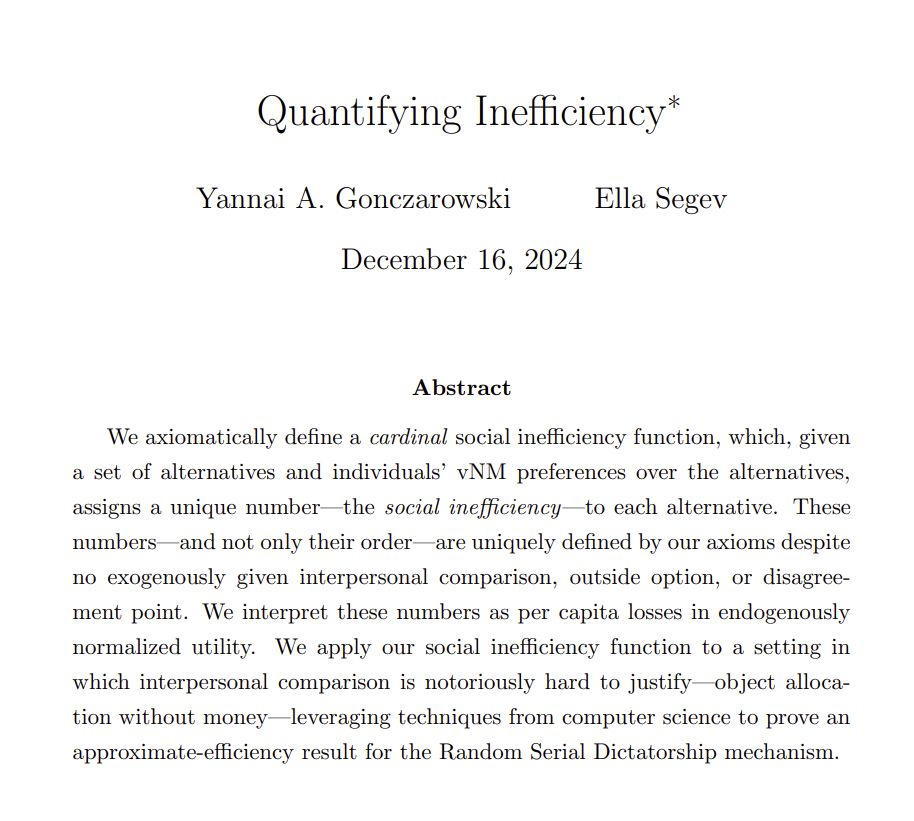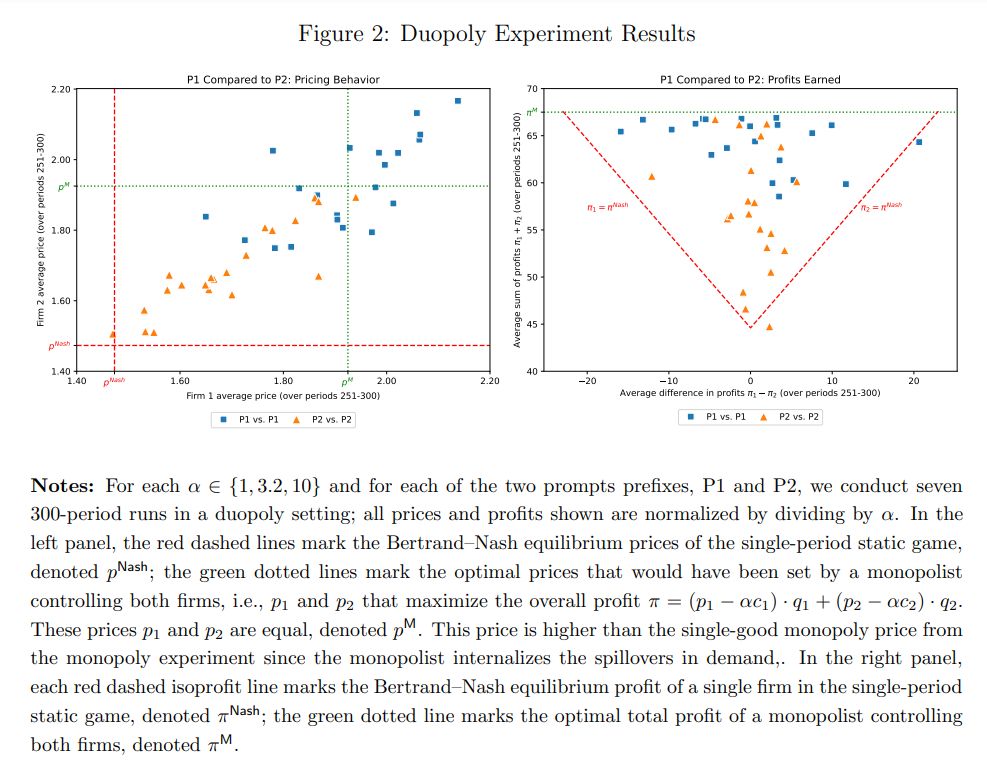
https://yannai.gonch.name/
@eleeshimshoni.bsky.social


@eleeshimshoni.bsky.social
1. Adding photos of his kids
2. Using memes
Happy to see my efforts of enriching econ with computer science techniques are bearing fruit!

1. Adding photos of his kids
2. Using memes
Happy to see my efforts of enriching econ with computer science techniques are bearing fruit!
@alroth.bsky.social @ranshorrer.bsky.social.

@alroth.bsky.social @ranshorrer.bsky.social.









𝐐𝐮𝐚𝐧𝐭𝐢𝐟𝐲𝐢𝐧𝐠 𝐈𝐧𝐞𝐟𝐟𝐢𝐜𝐢𝐞𝐧𝐜𝐲
Joint with Ella Segev
Social choice theory provides ways for aggregating the preferences of individuals in a society, to tell us what is better for society: alternative a or alternative b. However, this theory is silent on 𝑏𝑦 ℎ𝑜𝑤 𝑚𝑢𝑐ℎ a is better than b. 1/9

𝐐𝐮𝐚𝐧𝐭𝐢𝐟𝐲𝐢𝐧𝐠 𝐈𝐧𝐞𝐟𝐟𝐢𝐜𝐢𝐞𝐧𝐜𝐲
Joint with Ella Segev
Social choice theory provides ways for aggregating the preferences of individuals in a society, to tell us what is better for society: alternative a or alternative b. However, this theory is silent on 𝑏𝑦 ℎ𝑜𝑤 𝑚𝑢𝑐ℎ a is better than b. 1/9


LLM-based pricing agents autonomously collude:
1. quickly (~100 rounds)
2. even when not instructed to
3. certain terms and phrases lead to ~monopoly profits
4. also in auction settings
New version (novel off-path analysis):
Price-war concerns by LLMs are a significant contributor.
2/3

LLM-based pricing agents autonomously collude:
1. quickly (~100 rounds)
2. even when not instructed to
3. certain terms and phrases lead to ~monopoly profits
4. also in auction settings
New version (novel off-path analysis):
Price-war concerns by LLMs are a significant contributor.
2/3
Algorithmic Collusion by Large Language Models
Joint w/ @sarafish.bsky.social & @ranshorrer.bsky.social
LLMs are automating many business decisions. Pricing might be next (or is already).
What if multiple firms, in good faith, to use off-the-shelf-LLMs for pricing? 1/3
#EconSky

Algorithmic Collusion by Large Language Models
Joint w/ @sarafish.bsky.social & @ranshorrer.bsky.social
LLMs are automating many business decisions. Pricing might be next (or is already).
What if multiple firms, in good faith, to use off-the-shelf-LLMs for pricing? 1/3
#EconSky

Say that two students have a dedicated WhatsApp group, in which they can only send two kinds of emojis: smileys (🙂) and frownies (🙁). They can strategize ahead of time, then each of them gets 1/2

Say that two students have a dedicated WhatsApp group, in which they can only send two kinds of emojis: smileys (🙂) and frownies (🙁). They can strategize ahead of time, then each of them gets 1/2


